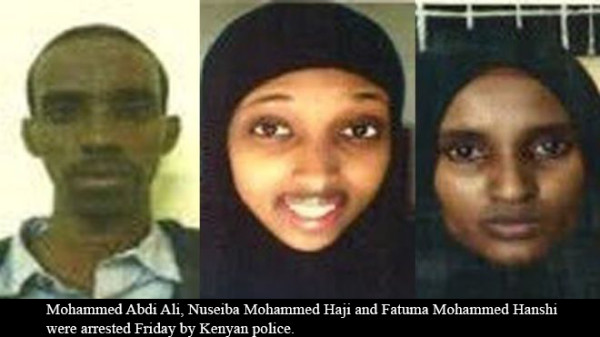Arrested terror suspect planned anthrax and large scale attacks in Kenya- police

A terror suspect arrested by Kenyan police last Friday was planning to launch large scale attacks and unleash biological attacks in the East African country using anthrax, Kenyan police said Tuesday.
The suspect identified as Mohamed Abdi Ali who was a medical intern in a hospital in Makueni County, eastern Kenya was part of a terror group in East Africa linked to the Islamic State for Iraq and the Levant, ISIL, police said.
The police said the group had been involved in radicalisation of university students in Kenya. “From our initial investigations, it has been established that the terror network linked to Mohamed Abdi Ali has been engaged in the active radicalisation, recruitment of university students and other Kenyan youth into terrorism networks,” said a statement by Kenyan police.
Large scale attacks
Ali, who is a medical student at Kampala International University, KIU in Uganda has been a member of the network which is spread to coast, north rift and western regions in Kenya as well as Somalia, Libya and Syria.
“The suspects were planning large scale attacks akin to the Westgate attack with the intention of killing many innocent Kenyans. His network included medical experts with whom they planned to unleash biological attack in Kenya using anthrax. His arrest and those of his accomplices is a major breakthrough in the fight against terrorism in Kenya and the region,” read the police statement.
The militant group Al-Shabaab, largely affiliated to al-Qaeda killed 67 people in Westgate Mall attack in uptown Nairobi in 2013.
Ali’s accomplice and wife, Nuseiba Mohamed, also a student at KIU was arrested in Uganda as she attempted to evade capture. Her associate and accomplice Fatuma Mohammed Harishi was also arrested.
Jahba East Africa
Kenyan police did not however say if the group was linked to the Jahba East Africa which declared its allegiance to ISIL in April and called on Al-Shabaab fighters to decamp and join ISIL.
The development comes amid reports some university students in Kenya have been radicalised and joined ISIL.
Kenya’s National Counter Terrorism Centre director Isaac Ochieng told a university gathering last year some students were actively in terror radicalism.
“We have serious evidence some students here in this hall are on the payroll of ISIS in Syria and Iraq,” Ochieng said.
The police said other suspects, Ahmed Hish and Farah Dagane, both medical interns at a hospital in Kitale, western Kenya have gone underground. Both have a $20,000 bounty on their heads.